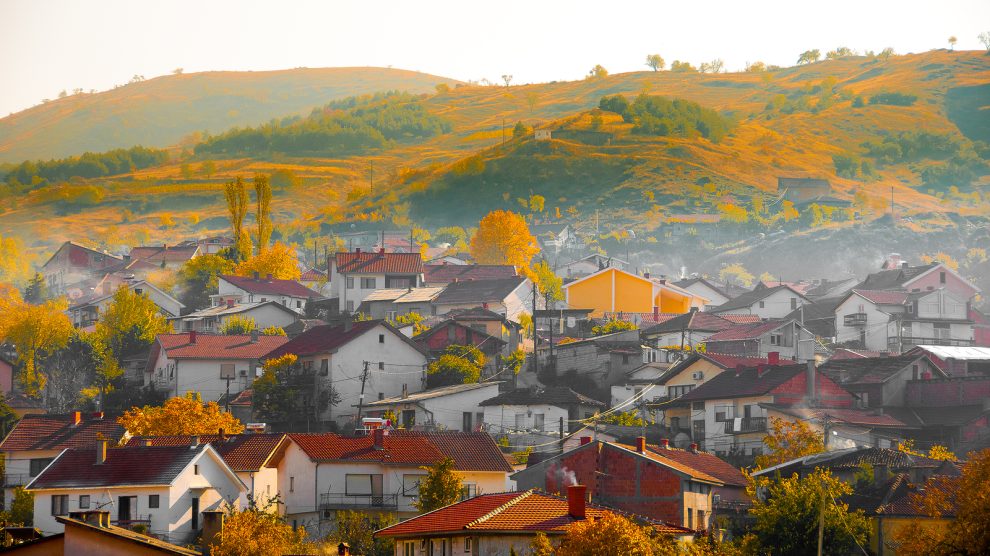Vulnerable to both severe flooding and drought, North Macedonia needs to invest 6.4 billion US dollars over the next decade to effectively protect people and property against the impacts of climate change.
North Macedonia could face economic damages of up to four per cent of its gross domestic product (GDP) by 2050 due to the impact of changing climate, according to a new World Bank Group Country Climate and Development Report (CCDR) published this week.
The report claims that North Macedonia needs to invest 6.4 billion US dollars over the next decade to effectively protect people and property against the impacts of climate change.
- In the Western Balkans, government failures are increasing coal pollution
- The challenge of financing low-carbon, climate-resilient investments in emerging economies
- Why companies are moving to the Western Balkans
With history marked by devastating floods and severe weather events such as torrential rains and heat waves, causing 667 million US dollars in losses over the past 20 years, North Macedonia’s climate challenges are mounting.
“Natural hazards disproportionally affect vulnerable sectors, especially agriculture, where small family farms are affected by droughts and hail due to inadequate irrigation, hail protection, and insurance,” says Massimiliano Paolucci, World Bank country manager for Kosovo and North Macedonia.
The country has a high degree of import dependence; historically, about 40 per cent of the electricity supply comes via electricity and natural gas imports. It also has significant import source vulnerability; gas is solely supplied from Russia through Bulgaria.
This level of dependence leaves the country highly vulnerable to energy price and supply shocks. Further, its reliance on oil and petroleum products for energy supply and coal for electricity generation (about 35 per cent of production comes from coal and five per cent from oil) means that North Macedonia’s energy system is not future-fit and remains vulnerable to environmental impacts.
A delayed phase-out of coal
Along with investments in climate adaptation, North Macedonia needs to accelerate the energy transition to achieve net zero emissions by 2050, in line with the European Union’s targets.
While the country last year committed to phasing out coal-fired power plants from its energy mix by 2030, in September, First Deputy Prime Minister and Minister of Environment and Spatial Planning Izet Mexhiti, part of a new government which took office in June, suggested that the date could be put back by as many as 20 years.
According to the World Bank’s report, transitioning away from fossil fuels can bolster energy security by fostering a more flexible and modernised energy system. This shift is also likely to yield substantial improvements in health and long-term economic outcomes, primarily through better air quality and the reduction of long-term energy system operating costs.
“Reaching net zero by 2050 is possible for North Macedonia but will require stepping up investments significantly,” says Nicolas Marquier, International Finance Corporation (IFC) regional manager for the Western Balkans.
“Mobilising private capital will be essential to accelerate the green transition and spur long-term sustainable growth.”
These investments encompass building 6.9 GW of renewable energy generation capacity, electrifying key sectors like transportation—most prominently 90 per cent of passenger cars would be e-vehicles by 2050—and increasing energy efficiency to save 36 per cent of heating energy per year.
Fiscal policy
North Macedonia is an upper-middle-income country that aspires to join the European Union, but its sustained growth has been achieved at high environmental and health costs.
North Macedonia has been converging with the EU in terms of gross domestic product (GDP) per capita (from 34 per cent of the EU27 average at purchasing power parity (PPP) in 2009 to 41.5 per
cent in 2021) and poverty has decreased. However, the country’s energy and carbon intensities remain higher than the EU-27 average; air pollution is a major issue, especially in the capital Skopje and other urban areas, including those in proximity to thermal power plants.
Fiscal policy is key to accelerate the transition to a greener economy, the report argues. North Macedonia Climate Public Finance Review, published this week alongside the CCDR, underscores that tax policies could incentivise renewable energy, green transportation and sustainable technologies by removing subsidies for coal-fired electricity while protecting vulnerable households from increased energy costs.
Climate budget tagging and green procurement processes can help with monitoring green finances and boost green purchases.
The Climate Public Finance Review also highlights the urgency of implementing carbon pricing to reduce greenhouse gas emissions and generate significant state revenue, potentially up to 730 million euros annually that could be used for needed mitigation and adaptation investments and just transition.
Unlike many news and information platforms, Emerging Europe is free to read, and always will be. There is no paywall here. We are independent, not affiliated with nor representing any political party or business organisation. We want the very best for emerging Europe, nothing more, nothing less. Your support will help us continue to spread the word about this amazing region.
You can contribute here. Thank you.


